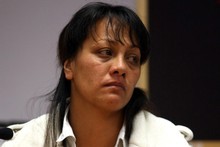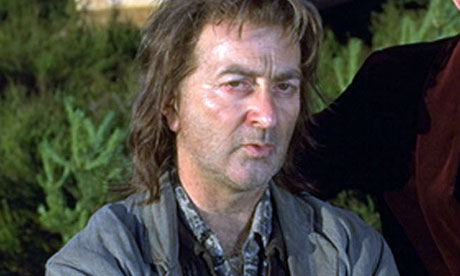When a group of would-be-censors get together to use Facebook and other social media to attempt to stop the sale of a book (which none of them have read) and that results in a number of major book retailers – Paper Plus and the Warehouse so far – bowing to that pressure then we have a sorry situation on our hands.
There is of course a great irony in the title of this book, Breaking Silence. The mother of the murdered Kahui twins has finally spoken out on the subject to controversial journalist/author/publisher Ian Wishart when I’m sure most New Zealanders will consider she should have spoken out back in 2006. The story of the Kahui twins is a hideous one and reading newspaper reports from the coroner’s court makes one feel totally disgusted.
But however appalling a story may be, and this one is truly horrific, it doesn’t mean to say that people should be prevented from writing about it, publishing about it or reading about it. If they are prevented then that is censorship. And after all there are dozens of books published containing graphic details of horrific crimes, and conjecture about unsolved cases, most of which go by unnoticed. Booksellers everywhere make decisions on a daily basis as to which titles they will stock. There are several hundred thousand titles published every year in the English language and even the largest of booksellers can only carry s small percentage of those titles. However they are free to pick and choose what they will stock and this freedom should not be interfered with.
We do not want a return to the days of the Indecent Publications Act when books were often banned, many of the now rated as classics and readily available everywhere. UBS Canterbury’s Philip King reminded me of the time in the early 90’s when he sold American Psycho shrink-wrapped while at the same time Whitcoulls initially refused to stock it.
Another irony in this story is that those people who set out to stop the sale of this book have almost certainly turned it into a huge best-seller providing publisher Ian Wishart with undreamed of enormous free publicity. He’ll be laughing all the way to the bank.
Other viewpoints:
Doris Mousdale of Arcadia Bookshop is considers the book to be in bad taste."I don't like it, I don't like her, I don't like what's happened and I think it's still out there to be resolved by the law courts and the police and it's not for people to read as a gossipy book." She says the wider population of New Zealand think child abuse has gone too far and this is where it stops. ."I think people have reached rock bottom in reality television and reporting and this possibly is as low as you can go, people have just said enough's enough, let's have some common sense about it." Ms Mousdale doubts people will fork out $40 for the book.
Lincoln Gould, CEO of Booksellers NZ, said booksellers make decisions all the time about what books they will sell and those decisions are very often related to their perception of consumer demand. We are of course totally opposed to any notion that a book should be banned - there is an issue of freedom of speech and the right of an individual to choose.
Carole Beu, The Women’s Bookshop, Ponsonby had this to say:
In my opinion, no publisher should be touching a subject as sensitive as the death of the Kahui twins, particularly at this time. I do not believe that any publisher with integrity should exploit any situation that arouses such intense public interest and controversy. It feels rather like the behaviour of some of our most cynical politicians – preying on people’s prejudices for personal gain. And, of course, getting a book into the media for free is a brilliant and inexpensive marketing campaign.
And two comments posted on my blog:
Kiwicraig has left a new comment on your post "Boycott of Kahui book 'death of free speech'":
It annoys me when people like Wishart bandy about phrases like 'death of free speech' - this situation is not that at all.
Freedom of speech is the right to be able to voice your opinion without the government throwing you in jail (or worse) because they don't like it.
It's not the right to say whatever you want with no consequences whatsoever.
Wishart is free to write whatever he wants, and self-publish it. He doesn't have any intrinsic right to have bookstores stock his book, just as no writer has an absolute right for anything they write to be stocked and sold by a bookstore.
It's all about choice. He can choose to write it. Other people can choose to read it or not - and voice their opinions about it. Bookstores can choose to stock it, or not. If they choose to stock it, then they accept that other people are free to choose to not buy it, boycott it, or change their opinion of the bookstore because of the decision they made.
Personally, I have no interest in reading King's 'side of the story', or anything written by Wishart in general. But I also haven't joined the FB group opposing the book.
It annoys me when people like Wishart bandy about phrases like 'death of free speech' - this situation is not that at all.
Freedom of speech is the right to be able to voice your opinion without the government throwing you in jail (or worse) because they don't like it.
It's not the right to say whatever you want with no consequences whatsoever.
Wishart is free to write whatever he wants, and self-publish it. He doesn't have any intrinsic right to have bookstores stock his book, just as no writer has an absolute right for anything they write to be stocked and sold by a bookstore.
It's all about choice. He can choose to write it. Other people can choose to read it or not - and voice their opinions about it. Bookstores can choose to stock it, or not. If they choose to stock it, then they accept that other people are free to choose to not buy it, boycott it, or change their opinion of the bookstore because of the decision they made.
Personally, I have no interest in reading King's 'side of the story', or anything written by Wishart in general. But I also haven't joined the FB group opposing the book.
Craig Ranapia has left a new comment on your post "Boycott of Kahui book 'death of free speech'":
'The death of free speech' is rather hyperbolic. As you (I think) pointed out on Nine to Noon today, no bookseller can possibly stock every one of the hundreds of thousands of books published every year. Selections are made, and I support the right of retailers to decline to stock titles for whatever reason they see fit - even if I find that reasoning unconvincing, to put it mildly.
However, I do think it's in order to point out the double standards of booksellers who decline to "profit from human misery" by stocking 'Breaking Silence' while they are perfectly happy to do precisely that. It's not exactly hard to find in Paper Plus and The Warehouse dozens of "true crime" books containing graphic details of horrific crimes (and/or rank speculation about unsolved cases), memoirs by convicted sociopathic thugs and novels/DVDs containing excruciatingly graphic depictions of violent abuse of women.
And on the BookieMonster blog - Breaking the Silence" and silencing others.
'The death of free speech' is rather hyperbolic. As you (I think) pointed out on Nine to Noon today, no bookseller can possibly stock every one of the hundreds of thousands of books published every year. Selections are made, and I support the right of retailers to decline to stock titles for whatever reason they see fit - even if I find that reasoning unconvincing, to put it mildly.
However, I do think it's in order to point out the double standards of booksellers who decline to "profit from human misery" by stocking 'Breaking Silence' while they are perfectly happy to do precisely that. It's not exactly hard to find in Paper Plus and The Warehouse dozens of "true crime" books containing graphic details of horrific crimes (and/or rank speculation about unsolved cases), memoirs by convicted sociopathic thugs and novels/DVDs containing excruciatingly graphic depictions of violent abuse of women.
And on the BookieMonster blog - Breaking the Silence" and silencing others.
Footnote:
I am sure there will be more comments in the days ahead.
Here is Ian Wishart's advertisement for the book from his magazine's website.


























